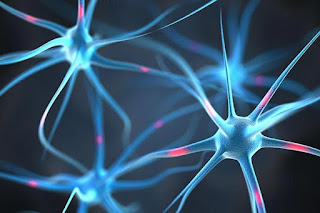Forget passwords, you might unlock everything around you with your brain one day
Passwords, PINs and fingerprints are currently used to unlock or sign into various devices and services, but these security layers might one day be replaced by a far more advanced tool: your brain.
Researchers at the Basque Center on Cognition, Brain and Language in Spain believe they can identify a user by looking at a specific type of brainwaves related to one’s reaction to spoken words.
Blair Armstrong’s team studied this particular type of identification by recording the brain signals of 45 volunteers as they read a list of 75 acronyms. With help of computers, the researchers discovered a way to identify a person by his or her brain signals related to understanding the words, which is apparently a process that’s unique for each individual.
The technique currently has an accuracy of about 94%, which is not enough to protect “a room or computer full of secrets,” as New Scientist puts it.
Furthermore, deploying such brainwave-analyzing tech isn’t user friendly for the time being. Someone interested in unlocking a phone with his or her brain would have to attach electrodes to the scalp.
However, there are advantages for the technique studied by Armstrong’s team. The brainwaves can provide a means of constant authentication on certain devices and services, eliminating the need to unlock them each time you use them.
Furthermore, brainwaves do not change (the specific ones that are analyzed by the researchers) and can’t be faked. Someone could always hijack
passwords and PINs, or even create fake fingerprints to fool security systems — but the brainwaves can’t be hacked in a similar manner.
Researchers at the Basque Center on Cognition, Brain and Language in Spain believe they can identify a user by looking at a specific type of brainwaves related to one’s reaction to spoken words.
Blair Armstrong’s team studied this particular type of identification by recording the brain signals of 45 volunteers as they read a list of 75 acronyms. With help of computers, the researchers discovered a way to identify a person by his or her brain signals related to understanding the words, which is apparently a process that’s unique for each individual.
The technique currently has an accuracy of about 94%, which is not enough to protect “a room or computer full of secrets,” as New Scientist puts it.
Furthermore, deploying such brainwave-analyzing tech isn’t user friendly for the time being. Someone interested in unlocking a phone with his or her brain would have to attach electrodes to the scalp.
However, there are advantages for the technique studied by Armstrong’s team. The brainwaves can provide a means of constant authentication on certain devices and services, eliminating the need to unlock them each time you use them.
Furthermore, brainwaves do not change (the specific ones that are analyzed by the researchers) and can’t be faked. Someone could always hijack
passwords and PINs, or even create fake fingerprints to fool security systems — but the brainwaves can’t be hacked in a similar manner.




Comments
Post a Comment